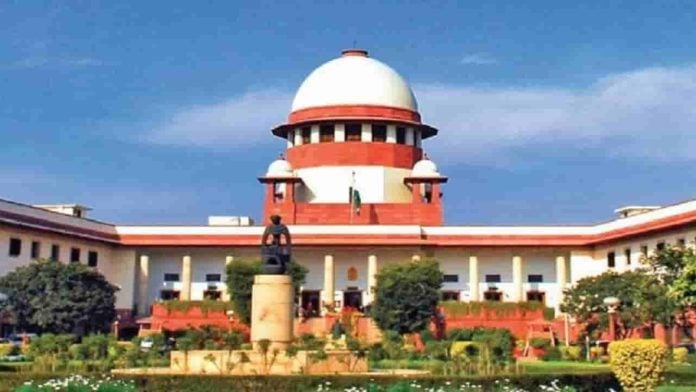The Supreme Court on Tuesday stayed fresh proceedings against Kerala Transport Minister Antony Raju, who was booked for alleged tampering of evidence during the trial of a drugs case in 1990.
The Bench of Justice C.T. Ravikumar and Justice Sanjay Kumar issued notice on two special leave petitions, which had challenged the Kerala High Court order quashing the criminal case against Raju.
On March 10, 2023, a Single-Judge Bench of the High Court had quashed the criminal case on technical reason that as per Section 195(1)(b) CrPC, cognisance cannot be taken on a police charge sheet in a case relating to fabrication of evidence in a court proceeding.
However, the High Court noted that the offence was of a serious nature, which interfered with the administration of justice. The Bench directed the Registry to take appropriate action to pursue the complaint under relevant provisions of the Code of Criminal Procedure (CrPC).
A third party named MR Ajayan moved the Supreme Court against the High Court verdict, which quashed the criminal case against Raju.
The Minister also filed a petition in the Apex Court challenging the High Court order to the extent that it allowed fresh proceedings to be initiated against him.
Representing Raju, Senior Advocate R. Basant questioned the locus standi of Ajayan in filing the Special Leave Petition, contending that only an accused, a State or a defacto complainant could approach the court.
Terming Ajayan as a ‘stranger’ and ‘interloper’ to the proceedings, the lawyer pointed out that the High Court had rejected his impleadment application.
The Bench pointed out that the High Court had nevertheless allowed the Senior Advocates of the intervenors to place their arguments, to which the Counsel replied that they were allowed to do so as Amicus and not in any other capacity.
Appearing for Ajayan, Senior Advocate S. Nagamuthu submitted that the special leave petition was filed along with an application seeking leave to file as a third party.
Noting that the offences were of a serious nature relating to the administration of justice, Nagamuthu argued that the matter should not be thrown out on technical reasons alone.
While issuing notice on the petitions, the Apex Court reserved the right of Raju to question the locus standi of Ajayan.
It further observed that since the issue was under the consideration of the Supreme Court, no further proceedings should be initiated in pursuance of the High Court’s order.
The Bench then posted the matter for hearing after six weeks.
As per the case, police had recovered charas from the pocket of underwear of an Australian national in 1990.
Raju was then a junior of the lawyer representing the Australian accused. As per the case, the underwear worn by the Australian was seized as a material object. The Court later allowed the return of personal belongings of the accused. However, the underwear, which was a material object in the case, was also returned, which was collected by Raju. This was later returned to the Court.
The Sessions Court had convicted the Australian under the Narcotic Drugs and Psychotropic Substances Act. The accused moved the Kerala High Court against the trial court order.
While acquitting the accused, the High Court contended that the underwear was not fitting the accused. A practical test was conducted before the Court to test the defence argument that the underwear was too small for the accused.
The High Court further observed that the possibility of tampering of evidence could not be ruled out and ordered a vigilance inquiry into the same.
An FIR was registered in the case and a final report was filed in 1994, which arrayed Raju and a court staff as accused in the case for the offences punishable under Sections 120B, 420, 201, 193 and 217 read with Section 34 of the Indian Penal Code (IPC).
The trial in the case, however, remained pending for several years. Raju moved the High Court in 2022, after some media reports highlighted the pendency of the case.


